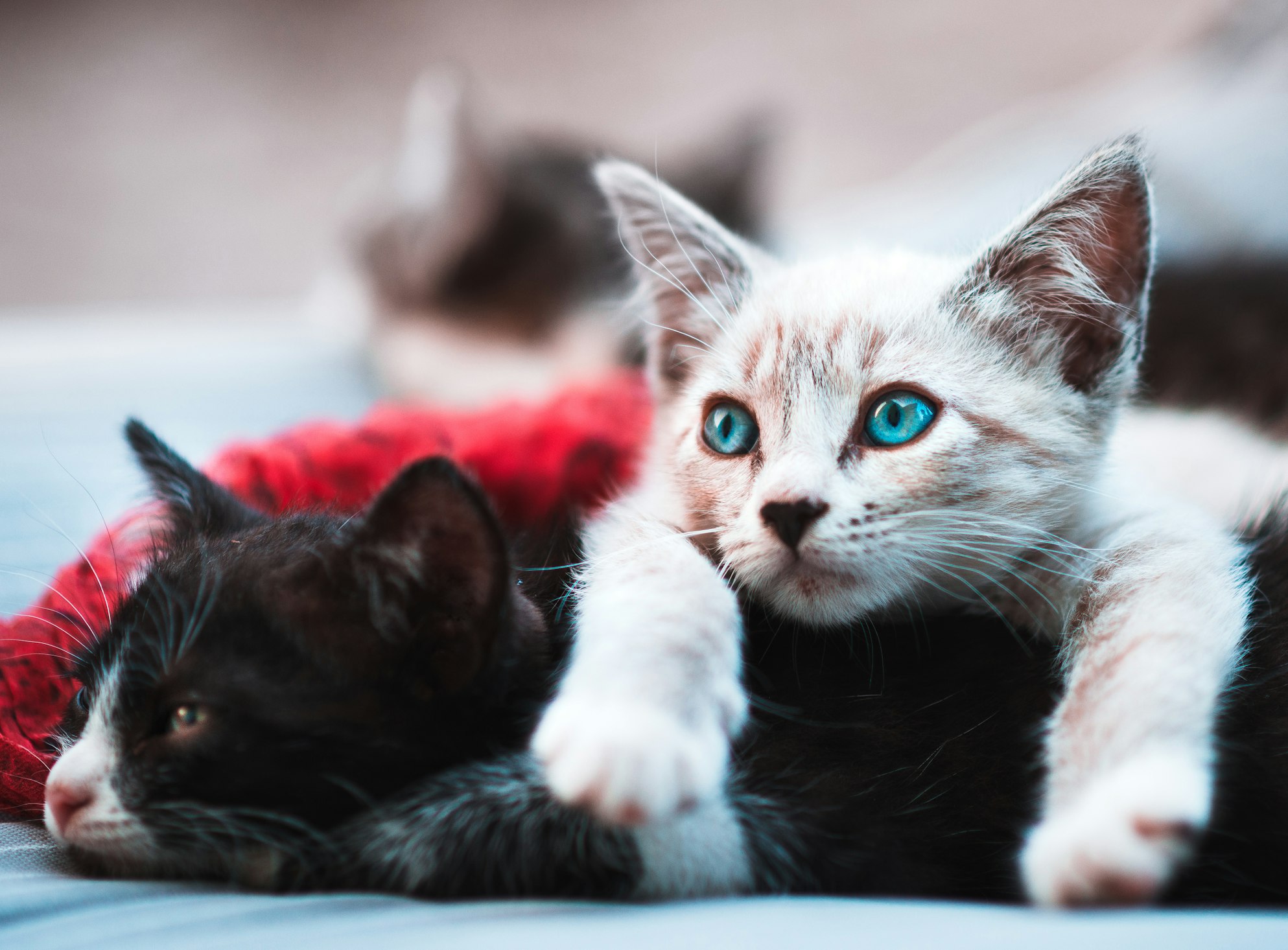
Choosing the Best
Pet Fountain
Sctyse Guide
As pet parents, we’re always on the lookout for ways to keep our furry family members happy, healthy, and hydrated. One innovative solution that has gained popularity among pet enthusiasts is the pet fountain. Unlike traditional water bowls, pet fountains provide a continuous flow of fresh, filtered water, encouraging pets to drink more and stay hydrated. In this ultimate guide, we’ll dive into the world of pet fountains, covering everything from benefits to buying tips. Let’s get started!
Why Consider a Pet Fountain? 💦
- Encourages Hydration: The moving water in pet fountains is more appealing to pets, encouraging them to drink more and stay hydrated.
- Fresh and Clean Water: Most fountains come with filters that remove impurities and odors, providing cleaner water for your pets.
- Convenience: With larger water capacities, pet fountains require less frequent refills, making it easier for pet parents.
- Health Benefits: Adequate hydration helps prevent urinary and kidney diseases in pets.
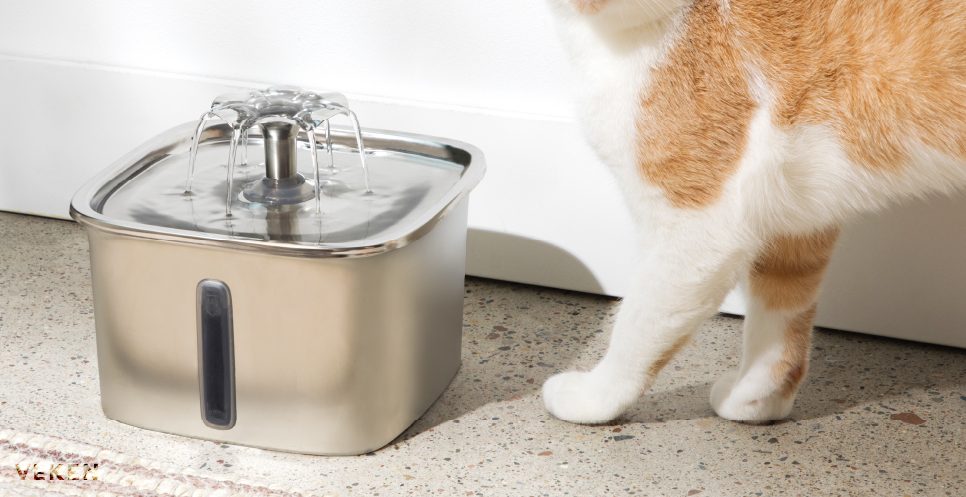
Types of Pet Fountains
When selecting the perfect pet fountain, understanding the different materials and designs available can help you make the best choice for your pet’s preferences and health needs. Here’s a more detailed look at each type:
Plastic Fountains
Plastic pet fountains are a popular choice due to their affordability and lightweight design, making them easy to move and handle. However, it’s essential to select a model made from BPA-free plastic to avoid any potential health risks. Some pets might develop acne from plastic, so keep an eye on your pet’s reaction to it.
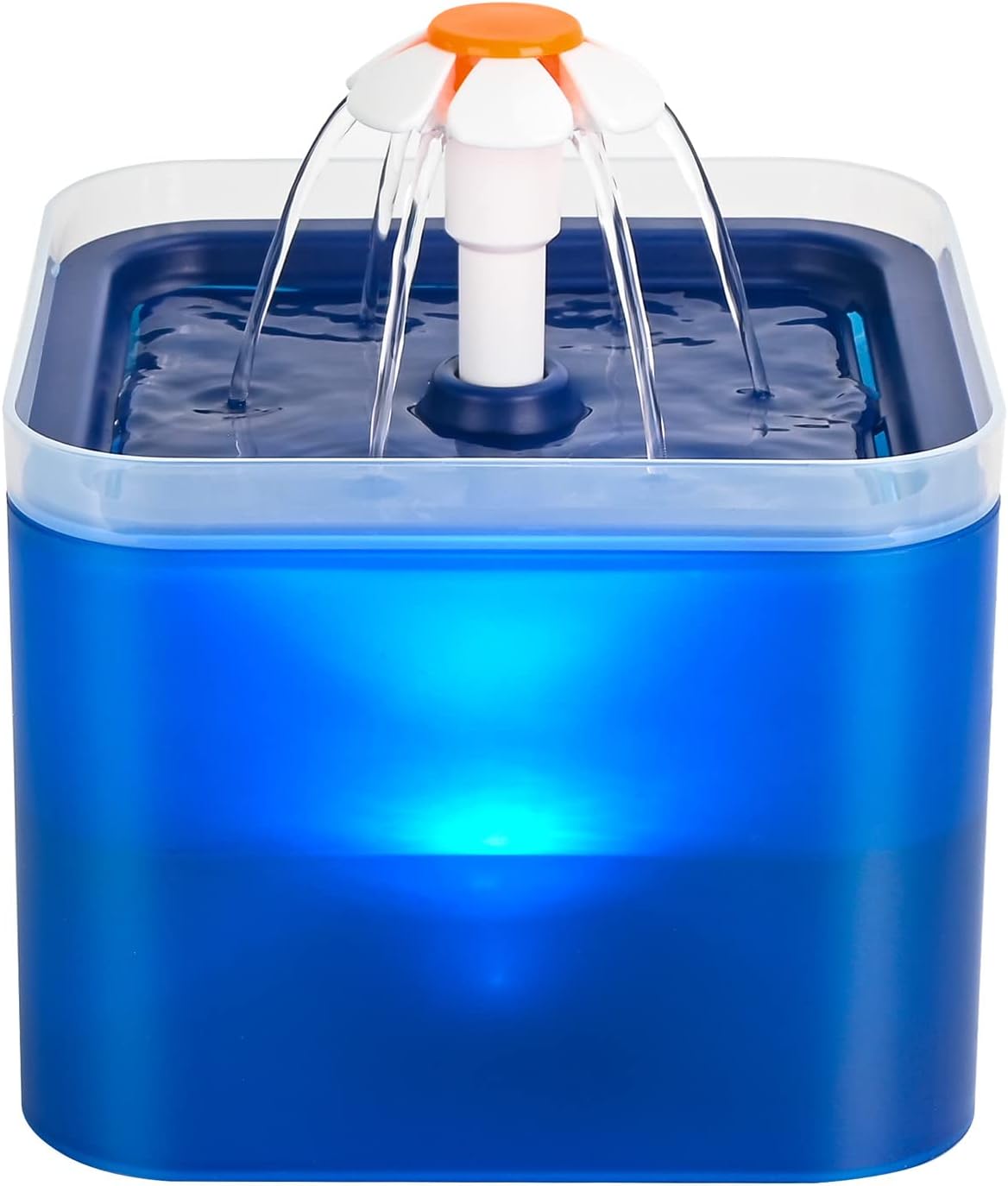
Stainless Steel Fountains
Stainless steel is renowned for its durability and ease of cleaning. These fountains not only look sleek but are also resistant to bacteria buildup, making them a hygienic option for your pet’s drinking water. Stainless steel fountains are often dishwasher safe, simplifying the cleaning process.
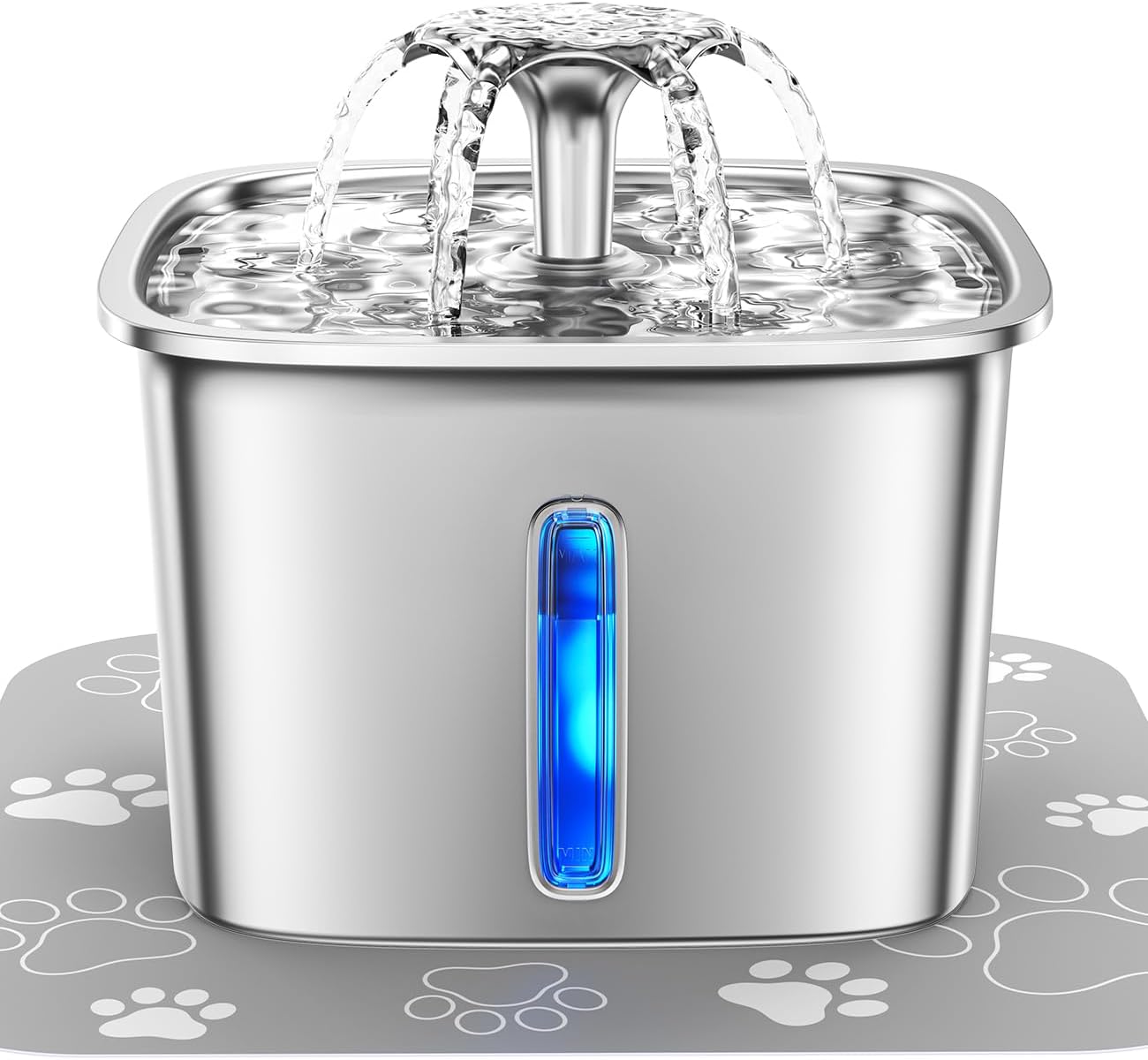
Ceramic Fountains
For pet parents looking for a fountain that complements their home décor, ceramic fountains are an attractive choice. They are heavier than plastic, making them more stable and less likely to be knocked over by playful pets. However, they can chip or break if dropped, so they require careful handling.
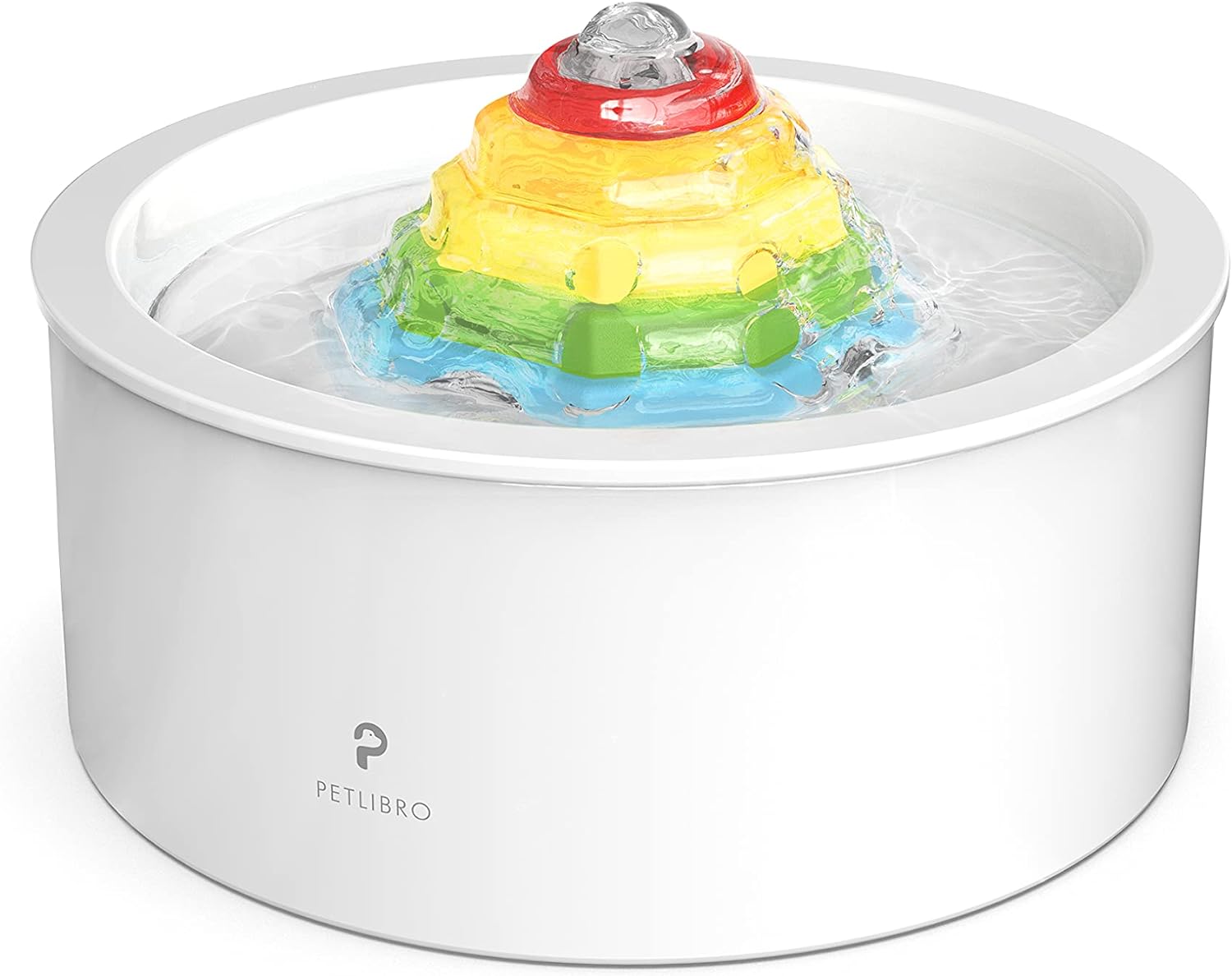
Glass Fountains
Though less common, glass pet fountains are an option for those seeking a combination of style and hygiene. Like ceramic, glass fountains can match various home decors and are easy to clean. They are also non-porous, which prevents bacteria from embedding in the surface.
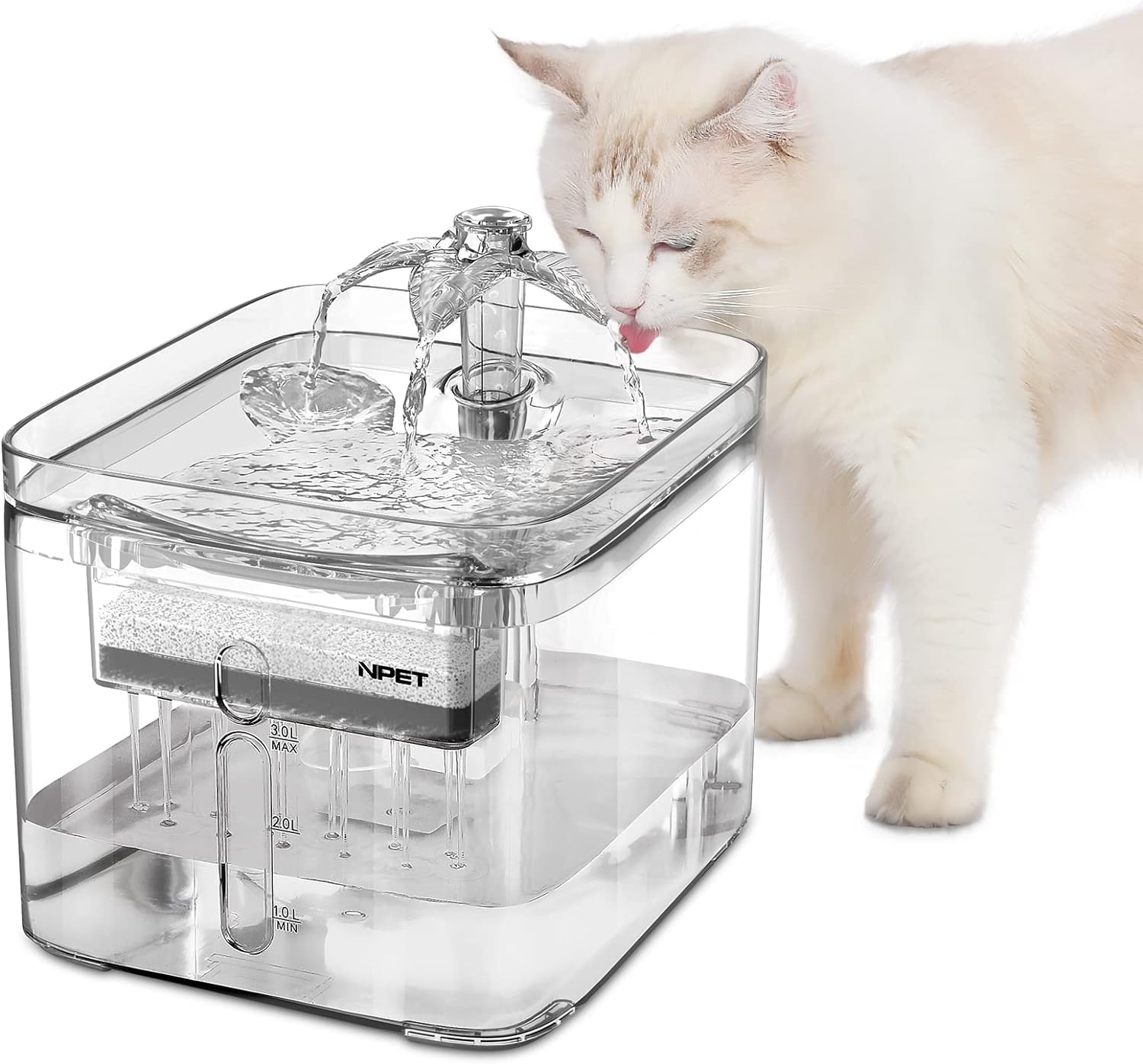
Multi-Tier Fountains
Multi-tier fountains offer pets the intriguing option of drinking from different levels, which can be particularly appealing to households with multiple pets. These fountains can accommodate pets of various sizes and encourage more drinking through their unique design.
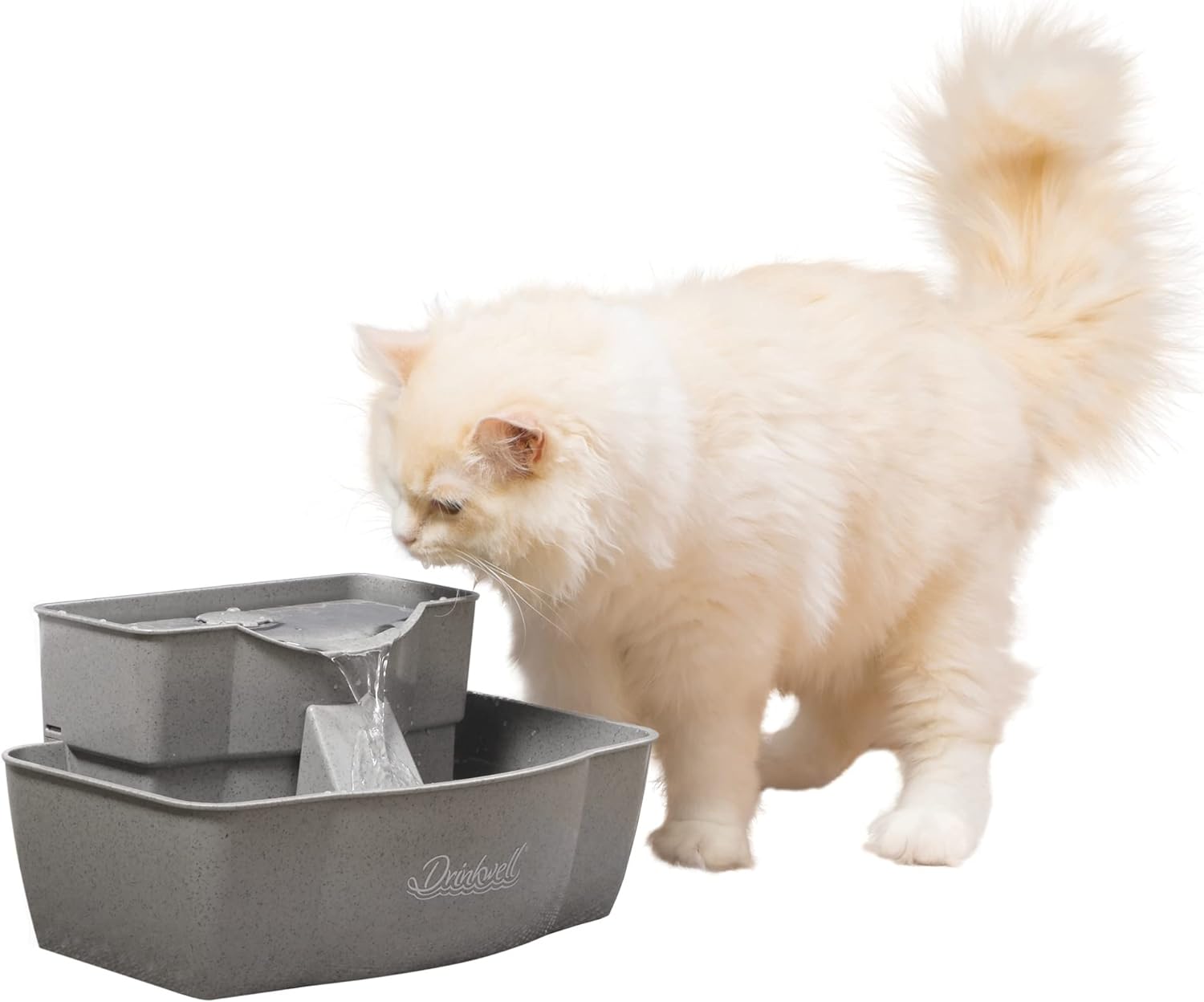
Gravity-based Fountains
These fountains use gravity to replenish water as pets drink, providing a continuous supply of fresh water without the need for electricity. They are an excellent option for outdoor settings or areas where power outlets are not readily available.
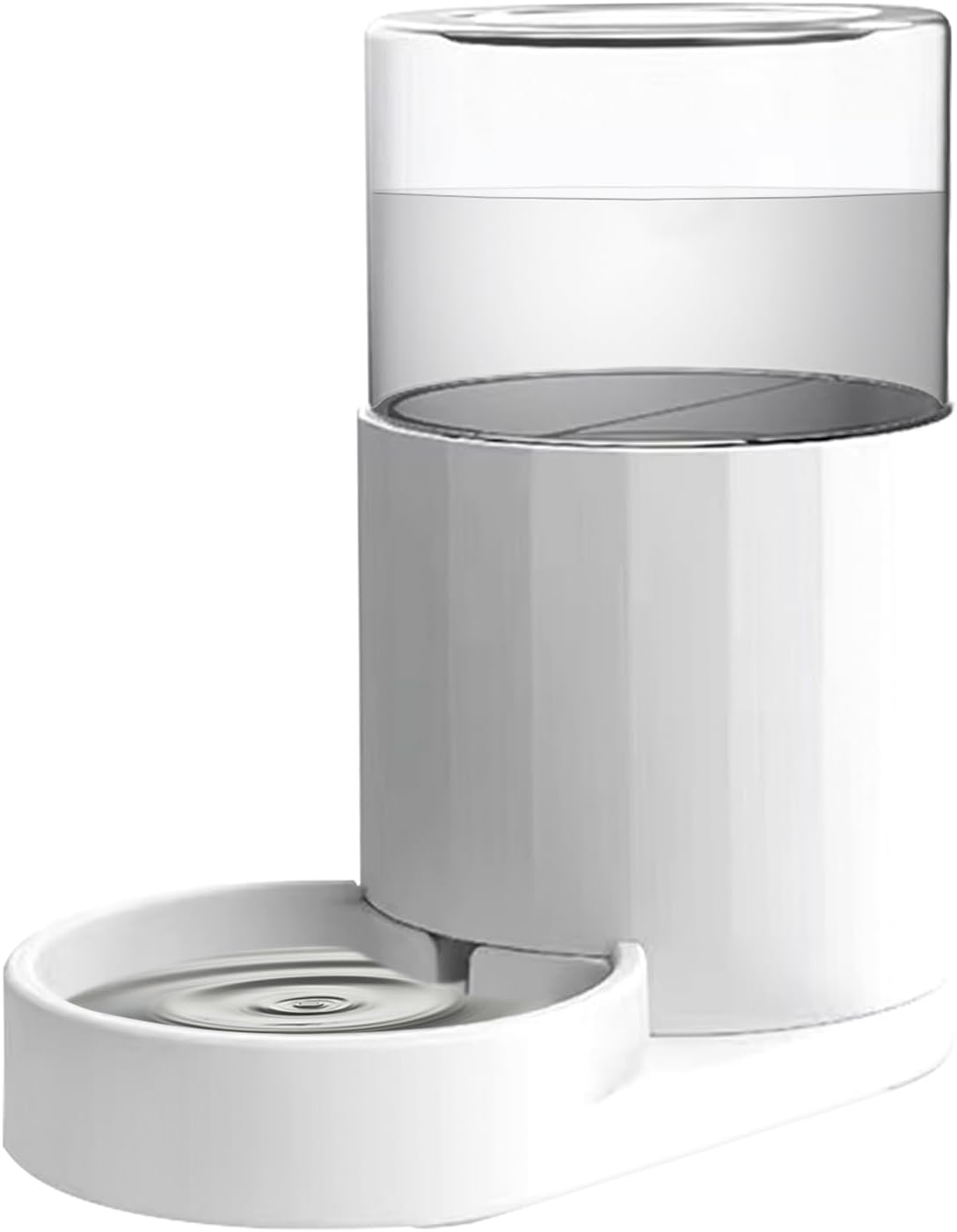
Top Features to Look For 🔍
1
Filter System
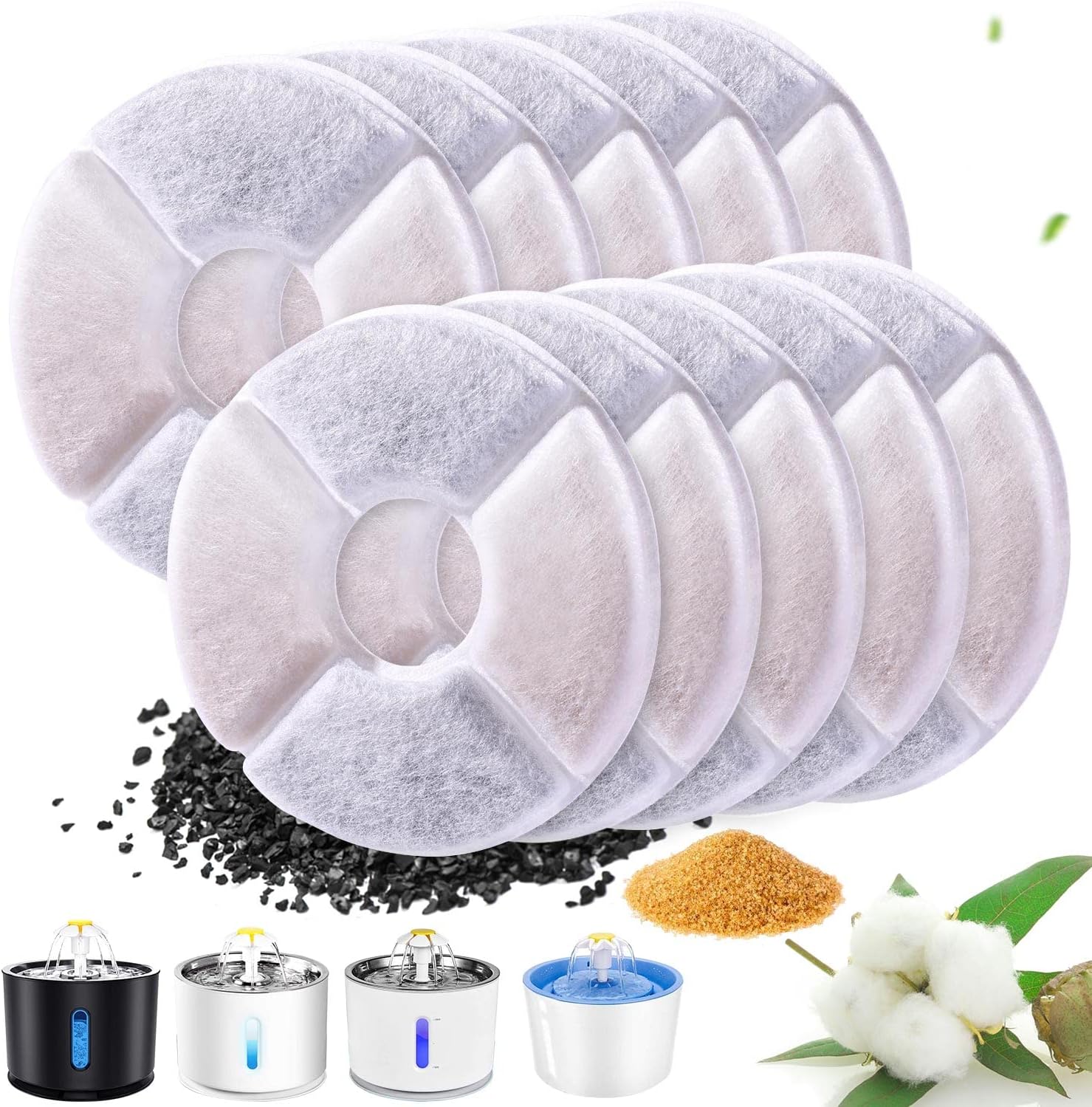
A robust filter system is crucial in a pet fountain to ensure the water your pet drinks is clean and free of impurities, such as hair, dust, and food particles. There are two main types of filters to look out for:
- Charcoal Filters: These filters use activated charcoal to remove bad tastes and odors from the water, making it more appealing to pets.
- Foam Filters: Foam filters catch larger debris and particles before they reach the pump, extending the life of the fountain and keeping the water clean.
Regular replacement of these filters is essential for maintaining water freshness and fountain functionality.
2
Water Capacity
The right water capacity depends on your pet’s size, the number of pets using the fountain, and how often you’re able to refill the fountain. Larger capacities (above one gallon) are excellent for multi-pet households or larger breeds, ensuring they have enough water throughout the day without constant refills.
3
Noise Level
A quiet operation is a must-have feature for many pet owners to avoid disturbing the household and to ensure pets aren’t scared away from drinking. Some fountains are designed with submersible pumps to minimize noise. It’s wise to read reviews or check product specifications for mentions of noise level.
4
Ease of Cleaning
Regular cleaning is non-negotiable to prevent mold and slime buildup. Look for fountains that are easy to disassemble, with dishwasher-safe parts, to make the cleaning process as hassle-free as possible. Fountains with fewer crevices and simpler designs tend to be easier to maintain.
5
Adjustable Flow Control
Pets have different preferences when it comes to the flow of water they drink from. Some may be intimidated by a strong flow, while others might find a gentle flow more appealing. Fountains with adjustable flow settings allow you to customize the water flow to suit your pet’s preference, encouraging them to drink more.
6
Material Safety
When choosing a pet fountain, the safety of the materials it’s made from should be a top priority. Pets, especially cats and dogs, can be sensitive to certain materials, and their health could be compromised if exposed to toxic substances. Here’s what to look out for:
- BPA-Free Plastic: Select plastic fountains that are BPA-free to prevent exposure to harmful chemicals that can affect your pet’s health.
- Food-Grade Stainless Steel: Opt for stainless steel fountains made from high-quality, food-grade material to avoid corrosion and ensure durability and safety.
- Lead-Free Ceramic: Choose ceramic fountains with lead-free glazes to prevent the risk of lead poisoning, ensuring a safe drinking environment for your pet.
- Durable, Non-Toxic Glass: If considering a glass fountain, make sure it’s made from sturdy, non-toxic glass that’s safe for your pet and resistant to minor impacts.
7
Design and Aesthetics
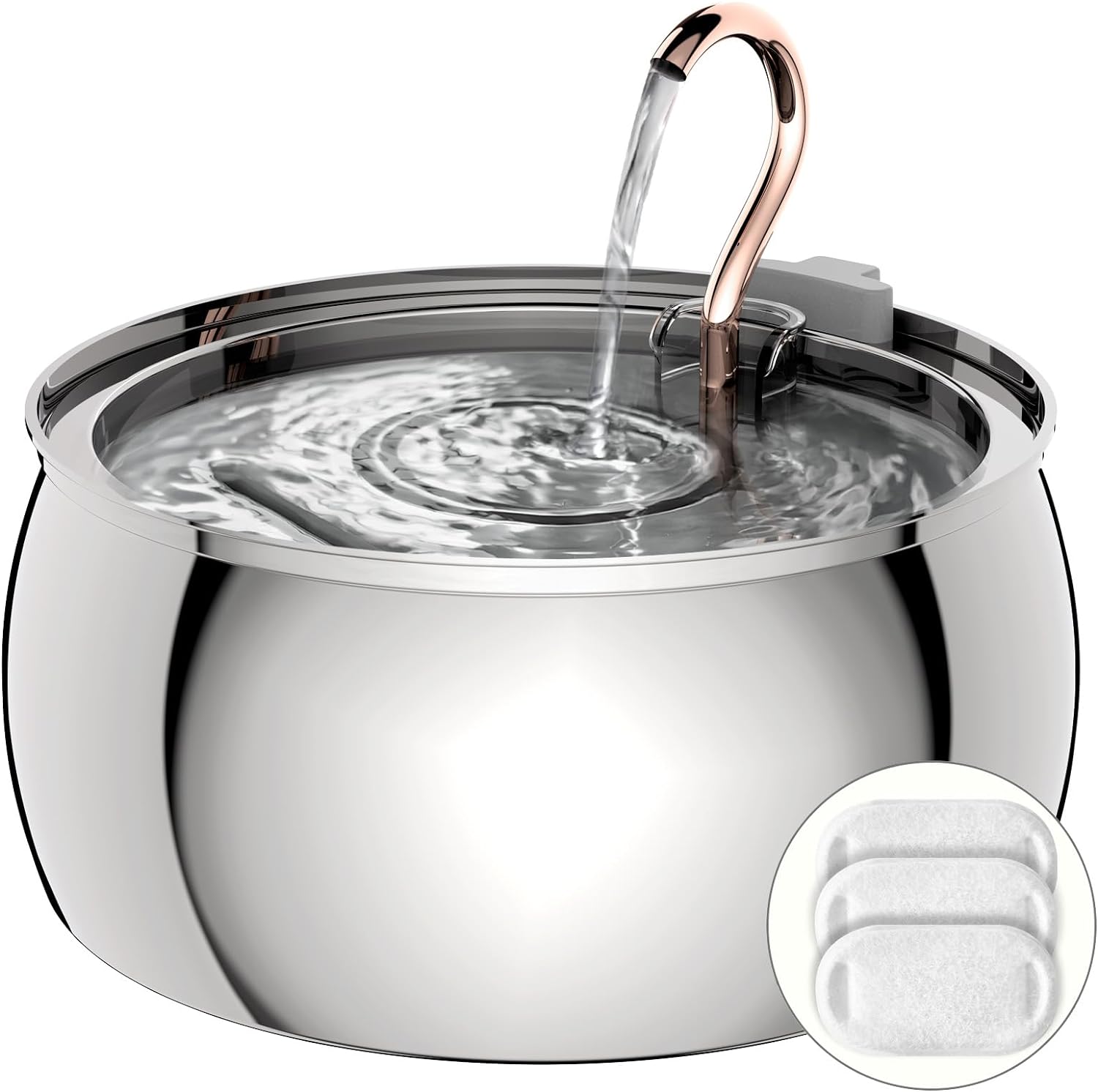
While not impacting functionality, the design and aesthetic appeal of a pet fountain can be important to pet owners looking to match their home decor. Many fountains come in sleek, modern designs that blend seamlessly with various interiors.
8
Warranty and Support
A warranty can provide peace of mind, offering protection against defects or issues. Look for products with a warranty and check out the manufacturer’s customer support services for assistance with setup, troubleshooting, and maintenance tips.
9
Energy Efficiency
For electrically powered fountains, energy efficiency is a key consideration, especially if the fountain will be running continuously. Look for fountains that consume low amounts of power to minimize your environmental footprint and electricity bills.
How to Maintain Your Pet Fountain 🧼
Proper maintenance is crucial for the longevity of the fountain and the health of your pet. Follow these tips:
- Regular Cleaning: Disassemble and clean each part of the fountain at least once a week.
- Replace Filters: Change filters according to the manufacturer’s recommendations to ensure water quality.
- Monitor Water Level: Keep the fountain filled to avoid motor burnout.
Our Top Picks for Pet Fountains 🏆
As pet owners, we want to ensure our furry friends have access to fresh, clean water at all times. That’s where pet fountains come in handy! These nifty devices not only provide a continuous flow of filtered water but also encourage your pets to drink more water 💧, which is essential for their overall health and well-being.
After extensive research and testing, we’ve rounded up our top picks for the best pet water fountains on the market. Whether you’re a proud cat owner or a devoted dog parent, we’ve got you covered!
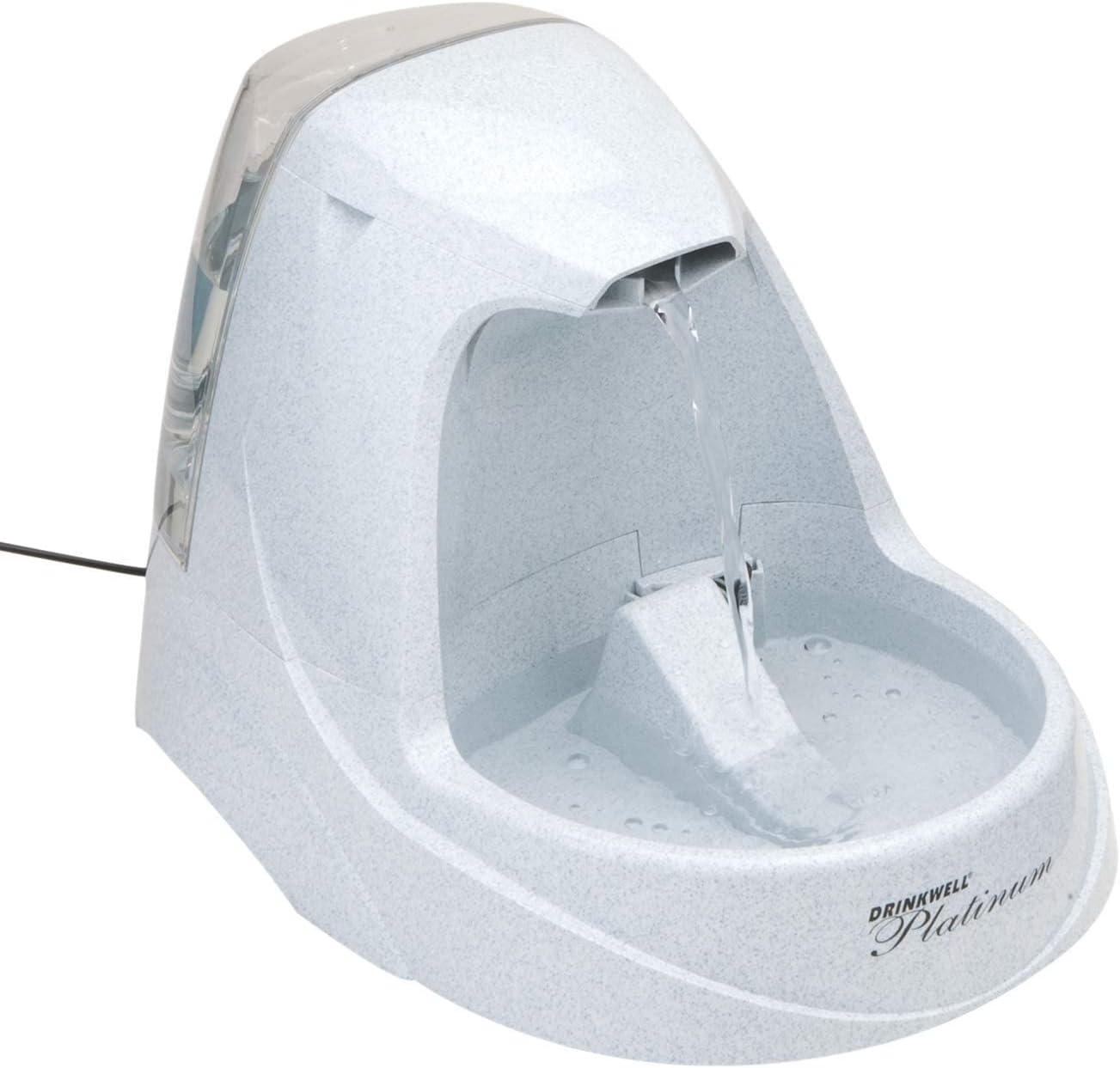
🥇 PetSafe Drinkwell Platinum Pet Fountain
The PetSafe Drinkwell Platinum Pet Fountain is our top pick for its sleek design, quiet operation, and easy maintenance. With a free-falling stream of water, this fountain entices your pets to drink more, promoting proper hydration. Plus, the activated carbon filter ensures fresh, great-tasting water for your furry companions.
Key Features:
- Large 1.3-gallon capacity
- Adjustable flow control
- Dishwasher-safe for easy cleaning
- Suitable for cats and dogs
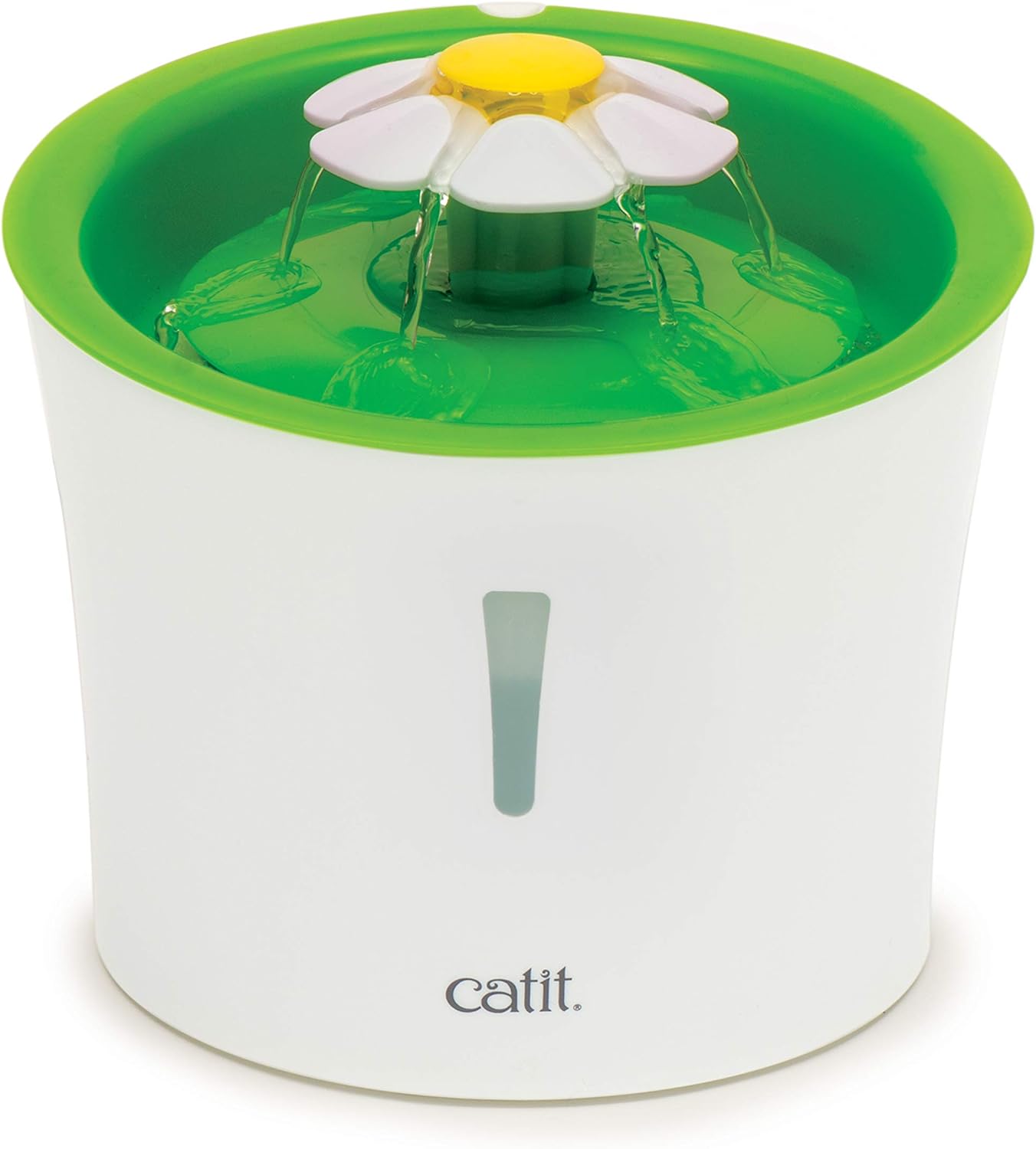
🥈 Catit Flower Fountain
If you’re looking for a cat water fountain that combines functionality and elegance, the Catit Flower Fountain is a fantastic choice. This fountain features three different water flow options, allowing you to cater to your feline friend’s preferences. Its unique flower design adds a touch of charm to any room.
Key Features:
- Triple-action water flow
- Quiet pump operation
- Easy-to-clean design
- BPA-free materials

🥉 iPettie Tritone Ceramic Pet Fountain
For those seeking a stylish and durable option, the iPettie Tritone Ceramic Pet Fountain is an excellent choice. Crafted from high-quality ceramic, this fountain is not only beautiful but also easy to clean and resistant to bacteria buildup. Its multi-tier design provides multiple drinking areas, perfect for households with multiple pets.
Key Features:
- Ceramic construction for durability
- Multi-tier design with waterfall
- Low power consumption
- Suitable for cats and dogs
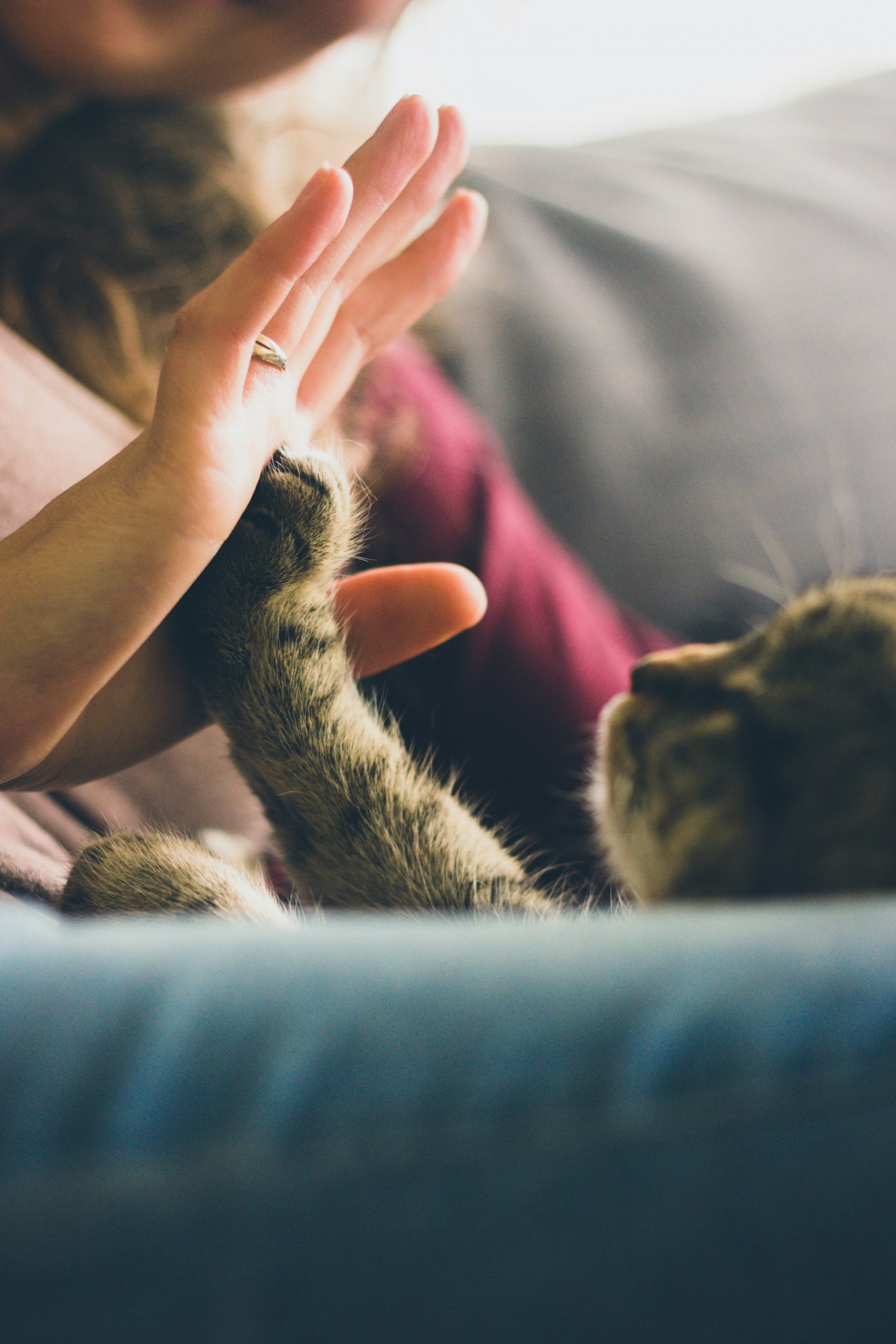
Guide to Introducing Your Pet to a Fountain
Introducing your pet to a new pet fountain can be a seamless experience with the right approach. Whether you have a curious kitten, a cautious pup, or a pet somewhere in between, this guide is designed to help make the transition as smooth as possible. Follow these steps to encourage your pet to embrace their new source of hydration.
Step 1: Familiarization
Place the Fountain Without Running It: Let your pet inspect the new fountain while it’s turned off. Placing it near their regular drinking area but without removing their usual water bowl can help.
Step 2: Gradual Introduction
Turn the Fountain On Without Pressure: Once your pet seems comfortable with the presence of the fountain, turn it on. Allow them to explore the running water at their own pace without forcing them to drink from it.
Step 3: Encourage Curiosity
Use Tasty Incentives: Encourage your pet to investigate the fountain by placing a few of their favorite treats around or near it. For cats, catnip or a favorite toy near the fountain can spark interest.
Step 4: Show and Tell
Lead by Example: Sometimes, pets need a little demonstration. You can gently lead them to the fountain and touch the water, showing them it’s safe and drinkable. Seeing you interact with the fountain can pique their interest.
Step 5: Patience and Praise
Be Patient and Offer Praise: Some pets may take to the fountain immediately, while others need more time. Be patient and offer plenty of praise and gentle encouragement when they approach or drink from the fountain.
Step 6: Slow Transition
Gradually Remove the Old Water Bowl: As your pet starts using the fountain more consistently, slowly phase out the old water bowl. Initially, you can remove it for part of the day, gradually extending the time until the fountain becomes the primary water source.
Additional Tips:
- Keep It Quiet: If the sound of the fountain seems to deter your pet, try lowering the flow rate to make it quieter. You can gradually increase it as they get used to the noise.
- Maintain Cleanliness: Ensure the water is always fresh and the fountain clean, as pets are more likely to be attracted to clean, fresh-smelling water sources.
- Observation: Watch your pet’s behavior around the fountain for any signs of discomfort or disinterest. Adjusting the fountain’s location or flow rate might be necessary.
Frequently Asked Questions (FAQs) About Pet Fountains
Choosing the right pet fountain can raise many questions, especially for first-time buyers. Below, we’ve compiled a list of frequently asked questions to help clarify any doubts and make your decision-making process smoother.
